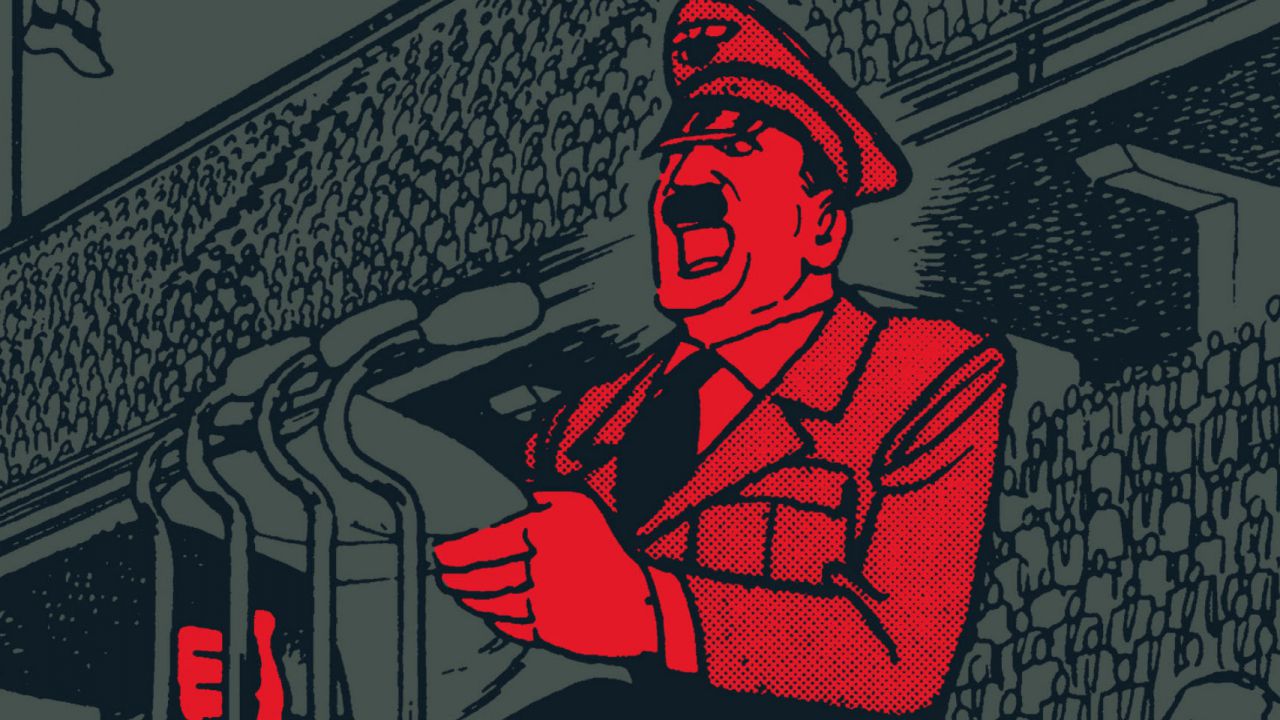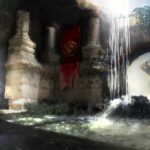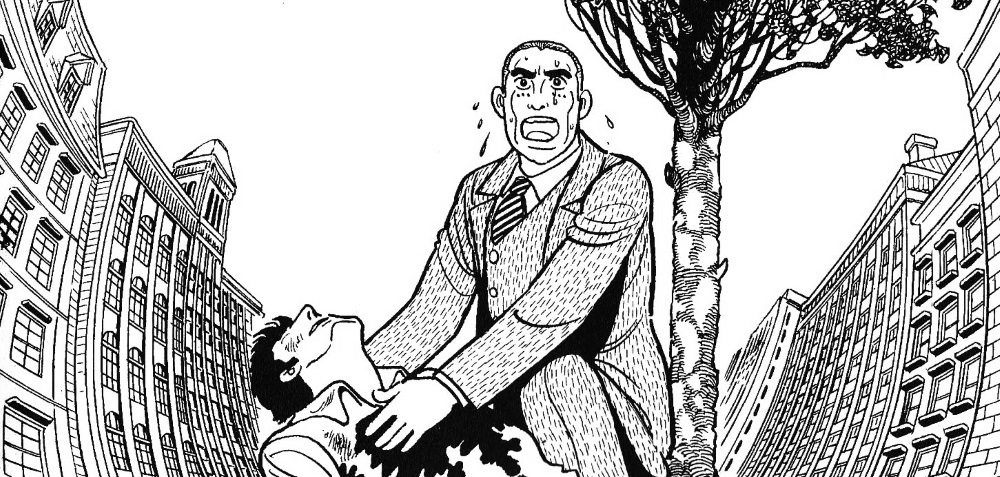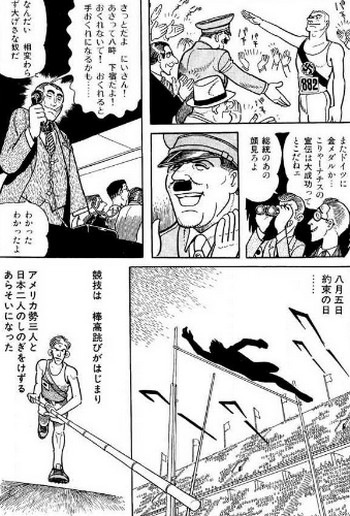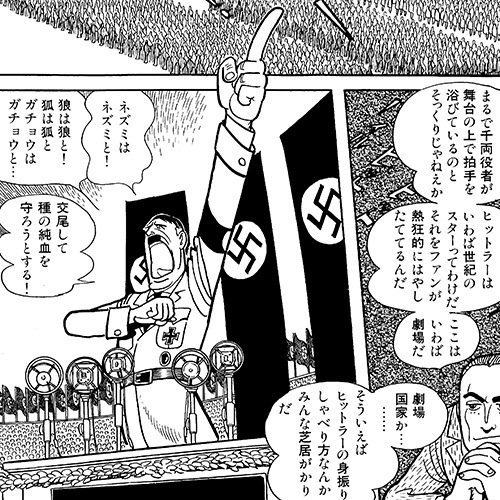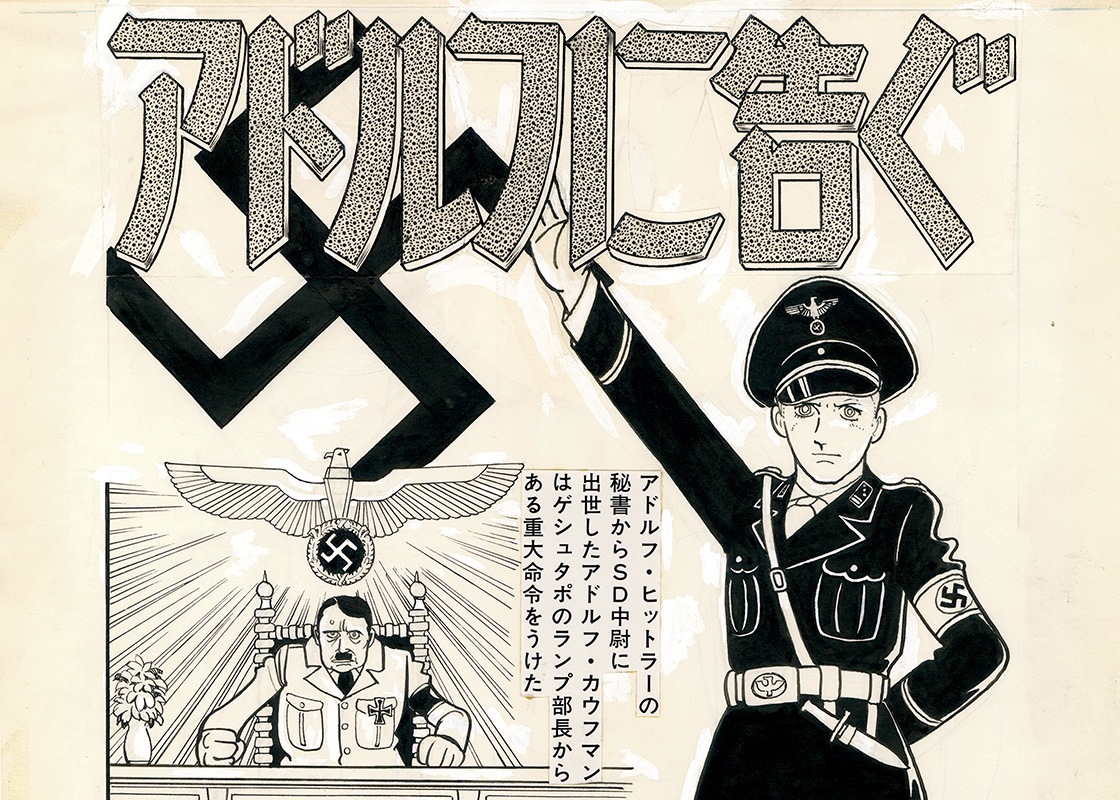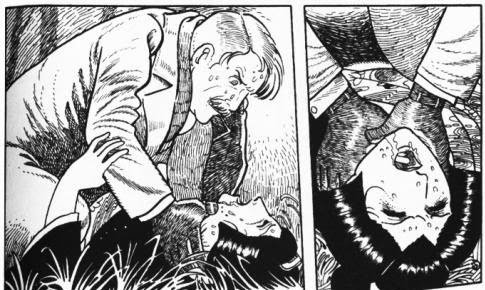Three Adolf
Three Adolf is an unmissable work by Osamu Tezuka, the genius of manga who revolutionized the world of comics. First published in 1983, this manga is a captivating fusion of historical drama and social reflection that will grip you from the first pages. Set during World War II, Three Adolf intertwines the story of three men with the same name: Adolf, but with profoundly different destinies and ideologies.
Adolf K.: A young German of Japanese descent living in Germany. Adolf K. is a brilliant boy with a strong aversion to the Nazi regime and its ideologies. His life takes a dramatic turn when he becomes a target of the Nazi secret police due to his anti-Nazi convictions.
Adolf H.: This Adolf is the son of a high-ranking Nazi officer and one of the main antagonists of the manga. Adolf H. represents the dark and oppressive aspect of the regime, immersed in the plots and political ambitions of the Third Reich. His growth and actions have a significant impact on the plot, leading to dramatic confrontations and increasing tensions.
Adolf H. (in Japan): A third Adolf, another key character, is a young Japanese man involved in the conflict and its consequences. This Adolf finds himself at the center of a series of events that reveal how the war affects people’s lives on a global scale.
The plot of Three Adolf stands out for its ability to weave real historical events with a compelling narrative, creating a story that is both educational and thrilling. Tezuka uses these historical backgrounds to explore the inner conflicts of his characters and to highlight the complex dynamics of World War II.
Three Adolf is not just a compelling historical narrative but a work rich with complex themes and deep reflections. Osamu Tezuka uses World War II as a backdrop to explore issues of identity, ideology, and inner conflict. Here are some of the main themes and messages that emerge from the manga:
Identity and Destiny
One of the central themes of Three Adolf is the concept of identity and how it is influenced by circumstances and personal choices. The three protagonists with the same name, Adolf, offer a reflection on how individual identity can be shaped by culture, politics, and personal experiences:
- Adolf K. struggles with his identity as a Japanese in Germany and his personal convictions that contrast with the Nazi regime.
- Adolf H. (the Nazi) embodies the identity imposed by the context of the Third Reich and the consequences of embracing an oppressive ideology.
- Adolf H. (the Japanese), despite sharing a name with the other two, lives a different reality that explores the concept of identity through a Japanese lens.
Ideology and Conflict
The manga explores how ideologies influence people and their actions, especially in a wartime context:
- Nazism and Oppression: Adolf H. (the Nazi) represents the oppressive ideology of Nazism, and his story illustrates the devastating consequences of totalitarian ideologies. His ambition and cruelty offer a critique of the regime and its effects on society.
- Resistance and Opposition: Adolf K. and his resistance against the Nazi regime represent the fight for justice and freedom. His opposition to abuses and discrimination highlights the value of resisting injustice.
War and Consequences
Tezuka uses the war as a prism through which to examine the human impact and global consequences:
- Personal Impact: The manga explores how war influences individual lives and their choices, showing the pain and devastation caused by the conflict.
- Global and Individual Conflicts: Through the stories of the three Adolfs, Tezuka demonstrates how geopolitical battles have personal and local repercussions, and how the lives of ordinary people are intrinsically linked to major historical events.
Morality and Ethics
The manga also invites moral and ethical reflections, questioning what is right and wrong in a context of war and conflict:
- Moral Dilemmas: The characters face moral dilemmas that challenge their beliefs and actions. Their growth and decisions provide food for thought on issues of ethics and justice.
- Consequences of Choices: The choices made by the protagonists have significant consequences, not only for themselves but also for those around them. This highlights the importance of personal choices in times of crisis.
Three Adolf is a work that transcends historical narration to offer a profound reflection on universal themes. Through its complex characters and compelling plot, Tezuka invites us to explore the dynamics of war, the influence of ideologies, and personal struggles, making this manga as exciting as it is thought-provoking.
In Three Adolf, Tezuka doesn’t just tell a war story; he explores the moral, ideological, and personal implications of World War II through layered narrative and rich characterization. The complexity of the plot and the depth of the characters make this manga a must-read for anyone interested in a narrative that combines history, psychology, and social critique.
Tezuka’s artistic style, with his distinctive use of black and white and his skill in creating detailed settings, contributes to making the reading experience immersive and visually engaging. The combination of historical elements with an intense narrative creates a read that is both educational and emotionally powerful.
For History and Comic Enthusiasts
If you are a history enthusiast and wish to explore a manga that addresses historical and ideological themes with seriousness and depth, Three Adolf is highly recommended. Its portrayal of World War II and its consequences offers a unique and reflective perspective on the conflict.
For Manga Readers Interested in Complex Themes
If you enjoy stories that tackle complex themes such as identity, ideological conflict, and moral choices, this manga will offer you a satisfying and stimulating read. The intricate plot and well-developed characters ensure a deep and engaging reading experience.
For Those Seeking a Visually Captivating Experience
Tezuka’s artistic style, with its elegance and ability to create vivid atmospheres, makes Three Adolf an excellent choice for those who appreciate artistic quality in comics. The expressive use of black and white and the attention to visual detail enhance the overall experience.
As usual, thank you for sticking with me until the end. If you enjoyed this brief review and want to purchase Three Adolf, you can find it at the best price by clicking on this link. This way, you’ll support my work and the dream that is Digidreamers. Until next time!

